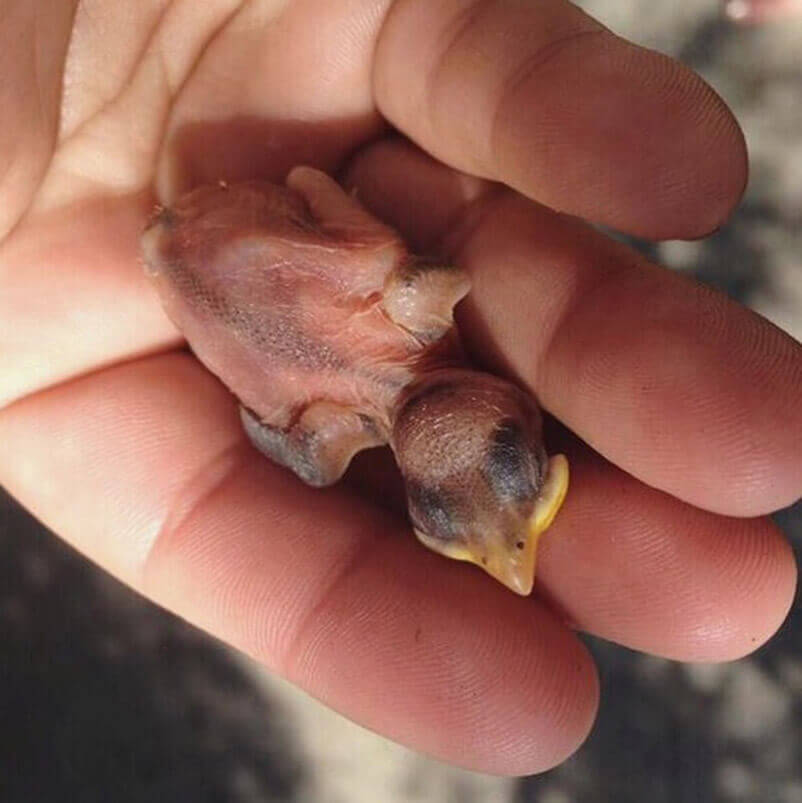
Care of Baby Birds: A Comprehensive Guide
Introduction
Baby birds, also known as nestlings, are vulnerable and require specialized care to ensure their survival and well-being. Whether you have found an orphaned or injured baby bird, or are simply curious about their care, this comprehensive guide will provide you with the essential knowledge and techniques to provide optimal care for these delicate creatures.
Identifying Baby Birds
Before providing care, it is crucial to identify the species of baby bird you have found. This will help you determine their specific dietary and housing requirements. Here are some common characteristics to look for:
- Size and Shape: Baby birds vary in size and shape depending on the species. Some are small and round, while others are larger and more elongated.
- Feathering: Nestlings typically have sparse or no feathers. As they grow, they will develop downy feathers and eventually flight feathers.
- Beak: The beak of a baby bird is typically soft and pliable. It may have a small hook or notch at the tip.
- Eyes: Baby birds’ eyes are usually closed or partially open. They will gradually open their eyes as they mature.
Assessing the Baby Bird’s Condition
Once you have identified the species of baby bird, assess its condition to determine the appropriate care.
- Check for Injuries: Examine the bird for any visible injuries, such as cuts, bruises, or broken bones.
- Observe Behavior: Observe the bird’s behavior. Is it active and alert, or lethargic and unresponsive?
- Listen for Sounds: Listen for any unusual sounds, such as wheezing, coughing, or sneezing.
- Examine Droppings: Check the bird’s droppings for any abnormalities, such as diarrhea or blood.
Providing Care
Feeding
Baby birds have specialized dietary needs and require frequent feedings. The type of food they need depends on their species.
- Insectivores: Birds that eat insects, such as robins and bluebirds, require a diet of live insects or mealworms.
- Frugivores: Birds that eat fruit, such as tanagers and orioles, require a diet of mashed fruit or fruit juice.
- Omnivores: Birds that eat both insects and fruit, such as mockingbirds and cardinals, require a diet that includes both types of food.
Feed baby birds every 15-30 minutes during the day. As they grow, they will require less frequent feedings. Use a small syringe or dropper to gently feed the bird.
Housing
Baby birds need a warm and secure environment to thrive.
- Nest Box: Provide a small, enclosed nest box lined with soft material, such as shredded paper or cotton balls.
- Temperature: Maintain a temperature of 85-95°F (29-35°C) for young nestlings. Gradually reduce the temperature as they grow.
- Humidity: Provide a humid environment by placing a damp paper towel or sponge in the nest box.
Hygiene
Maintaining good hygiene is essential for the health of baby birds.
- Cleanliness: Keep the nest box and feeding utensils clean.
- Bathing: Baby birds do not need to be bathed, but you can gently wipe their feathers with a damp cloth.
- Droppings: Remove droppings from the nest box regularly to prevent the spread of bacteria.
Socialization
Baby birds benefit from socialization with other birds of their species. If possible, place the baby bird in a foster nest with a similar-aged bird. If this is not possible, provide the bird with plenty of interaction and vocal stimulation.
Rehabilitation and Release
The ultimate goal of caring for a baby bird is to rehabilitate it and release it back into the wild. This process can take several weeks or months.
- Rehabilitation: Gradually introduce the bird to live prey or fruit, depending on its species. Provide it with opportunities to exercise and develop its flight skills.
- Release: Once the bird is fully feathered and capable of flying, release it in a suitable habitat. Choose a location with ample food and shelter.
Common Health Problems
Baby birds are susceptible to various health problems. Here are some common issues to watch for:
- Malnutrition: Baby birds may suffer from malnutrition if they are not fed a proper diet.
- Dehydration: Baby birds can become dehydrated quickly. Ensure they have access to fresh water at all times.
- Respiratory Infections: Baby birds are prone to respiratory infections, which can be caused by bacteria or viruses.
- Parasites: Baby birds can be infected with parasites, such as mites or worms.
If you suspect your baby bird is sick, seek veterinary attention immediately.
Legal Considerations
It is important to be aware of the legal implications of caring for a baby bird. In many jurisdictions, it is illegal to possess or care for wild birds without a permit. Contact your local wildlife rehabilitation center for guidance on the legal requirements in your area.
Conclusion
Caring for baby birds requires patience, dedication, and specialized knowledge. By following the guidelines outlined in this comprehensive guide, you can provide these vulnerable creatures with the care they need to thrive and return to the wild. Remember to seek professional assistance if you have any concerns about the bird’s health or well-being.
